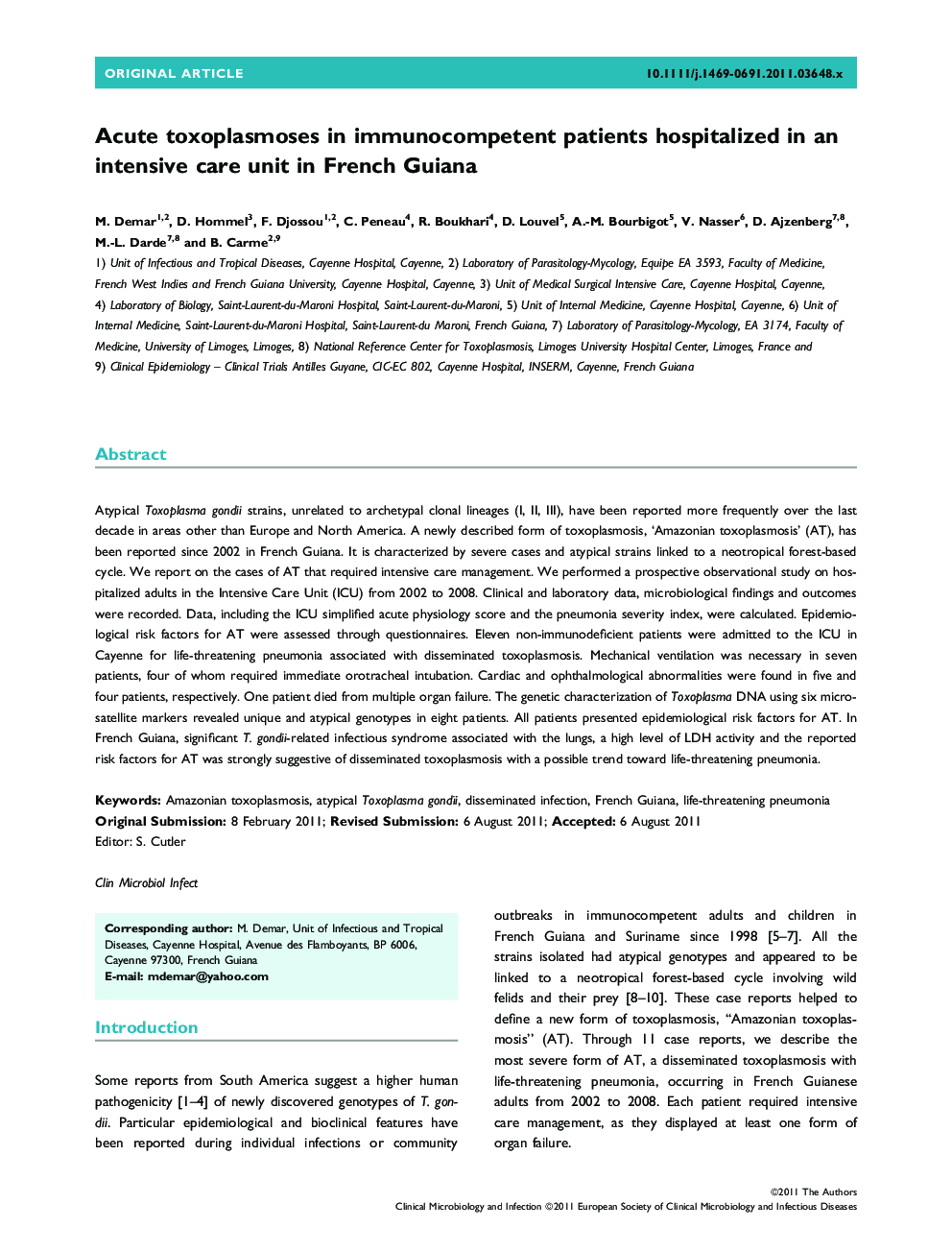| Article ID | Journal | Published Year | Pages | File Type |
|---|---|---|---|---|
| 6131091 | Clinical Microbiology and Infection | 2012 | 11 Pages |
Abstract
Atypical Toxoplasma gondii strains, unrelated to archetypal clonal lineages (I, II, III), have been reported more frequently over the last decade in areas other than Europe and North America. A newly described form of toxoplasmosis, 'Amazonian toxoplasmosis' (AT), has been reported since 2002 in French Guiana. It is characterized by severe cases and atypical strains linked to a neotropical forest-based cycle. We report on the cases of AT that required intensive care management. We performed a prospective observational study on hospitalized adults in the Intensive Care Unit (ICU) from 2002 to 2008. Clinical and laboratory data, microbiological findings and outcomes were recorded. Data, including the ICU simplified acute physiology score and the pneumonia severity index, were calculated. Epidemiological risk factors for AT were assessed through questionnaires. Eleven non-immunodeficient patients were admitted to the ICU in Cayenne for life-threatening pneumonia associated with disseminated toxoplasmosis. Mechanical ventilation was necessary in seven patients, four of whom required immediate orotracheal intubation. Cardiac and ophthalmological abnormalities were found in five and four patients, respectively. One patient died from multiple organ failure. The genetic characterization of Toxoplasma DNA using six microsatellite markers revealed unique and atypical genotypes in eight patients. All patients presented epidemiological risk factors for AT. In French Guiana, significant T. gondii-related infectious syndrome associated with the lungs, a high level of LDH activity and the reported risk factors for AT was strongly suggestive of disseminated toxoplasmosis with a possible trend toward life-threatening pneumonia.
Keywords
Related Topics
Life Sciences
Immunology and Microbiology
Microbiology
Authors
M. Demar, D. Hommel, F. Djossou, C. Peneau, R. Boukhari, D. Louvel, A.-M. Bourbigot, V. Nasser, D. Ajzenberg, M.-L. Darde, B. Carme,
